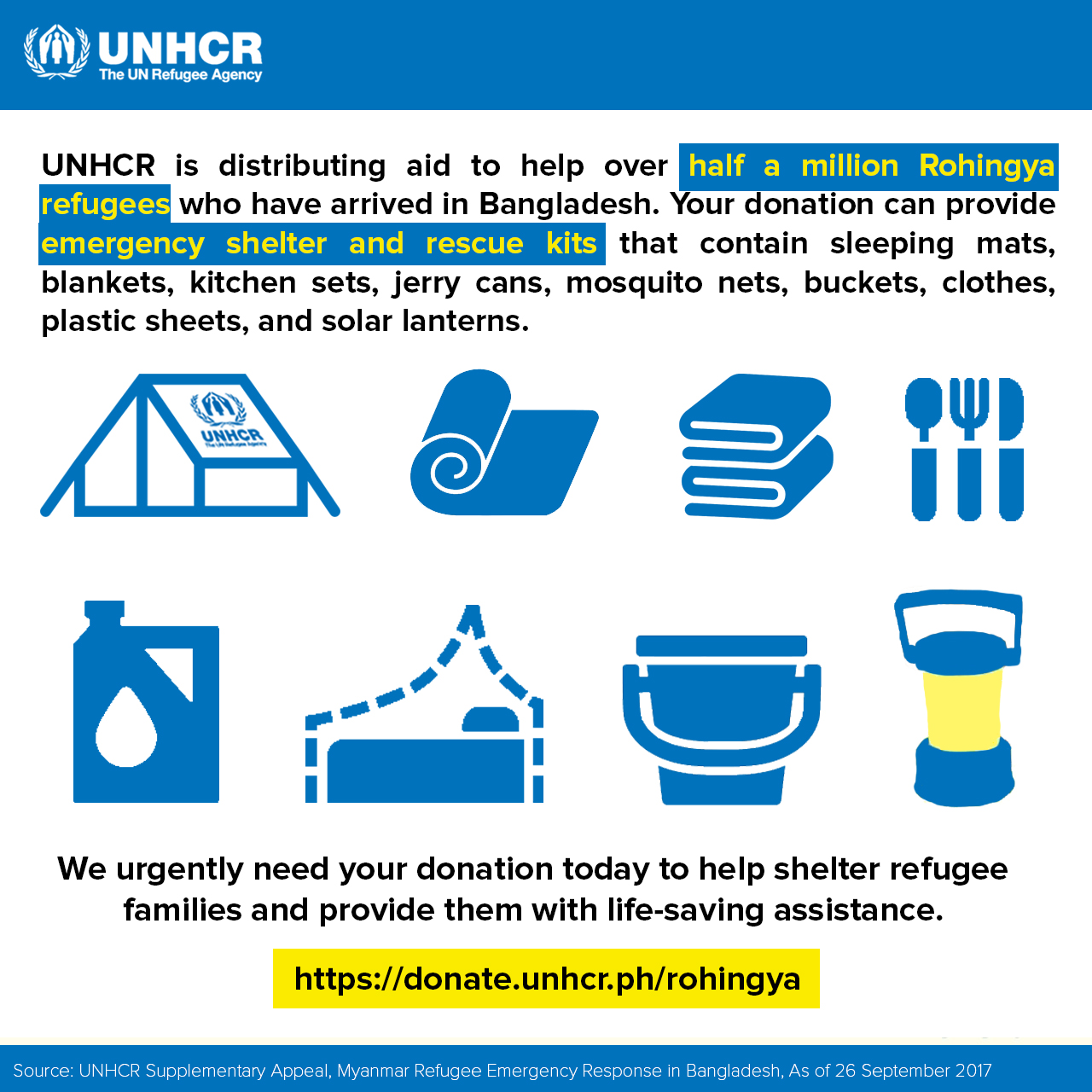Who are the Rohingya?

The Rohingya are a stateless Muslim minority in Myanmar. The latest exodus began on 25 August 2017, when violence broke out in Myanmar’s Rakhine State. The vast majority of Rohingya refugees reaching Bangladesh are women and children, including newborn babies. Many others are elderly people requiring additional aid and protection. They have nothing and need everything.
Over half of the new arrivals have sought shelter in and around the existing refugee camps of Kutupalong and Nayapara and in makeshift sites that existed before the influx. Some have joined relatives there, while others are drawn to the assistance and services – putting immense pressure on the existing facilities.
The situation remains precarious as refugees continue to arrive every day. Many refugees tell horrific stories of extreme violence, several showing wounds and trauma inflicted before their flight. They claim many other families are on the run and are trying to reach safety in Bangladesh. As more refugees arrive every day there is an acute need for emergency shelters, blankets and other forms of aid. To lessen the risk of waterborne and airborne diseases, refugees and host communities urgently need more clean water, health care and other supplies. Pregnant women, young children and the elderly are especially vulnerable.
What is UNHCR doing?

This is the fastest-growing refugee emergency in the world today, with over 688, 000 Rohingya refugees seeking safety in Bangladesh. We are working with the Bangladesh government and partners to respond to the massive humanitarian needs. As of the end of October, UNHCR had airlifted to Bangladesh some 940 metric tonnes of life-saving aid, including tents, plastic sheets, blankets, mosquito nets, kitchen sets and jerry cans. Furthers airlifts are planned.
Newly arriving refugees are being relocated to the recently constructed Kutupalong Extension, a new site near Kutupalong refugee camp. We are working to equip the site with medical clinics, community centres, schools, proper sanitation facilities, as well as improve the roads for the quicker delivery of core relief items.
Why is your help needed?

The vast majority of newly arriving refugees are now living outside the camps, in makeshift settlements and temporary shelters – often nothing more than tarpaulin held on bamboo poles.
Other refugees arrive in extremely poor conditions, bringing only the clothes on their backs after enduring dangerous journeys through dark jungles and sailing across violent waves.
We are working with the Government of Bangladesh and other authorities to identify suitable spaces to accommodate them, and give them the life-saving aid they desperately need such as clean water, healthcare, food, blankets, tents, and counselling sessions for those affected by severe trauma. Most of the Rohingya refugees are pregnant women, young children and the elderly, who are especially vulnerable and are at risk of contracting communicable diseases.
UNHCR requires an estimated USD 84 million to support the emergency response requirements from September 2017 to February 2018 in Bangladesh, which was already coping with devastating floods before the refugee influx. Much more needs to be done to meet the acute needs of children, women and men fleeing conflict.
As infrastructure and services continue to be overstretched, your help is urgently needed.
How can you help?
If you would like to support our work for the Rohingya families, please visit https://donate.unhcr.ph/rohingya.
Your donation is their lifeline.

